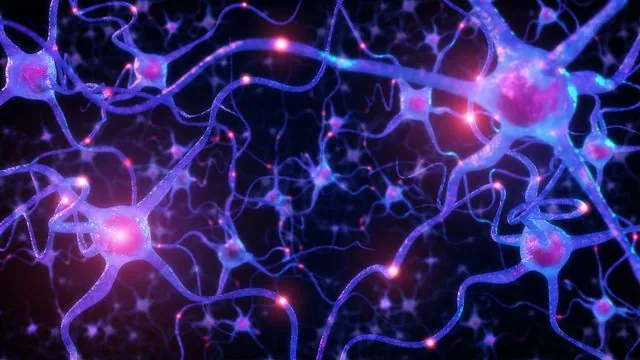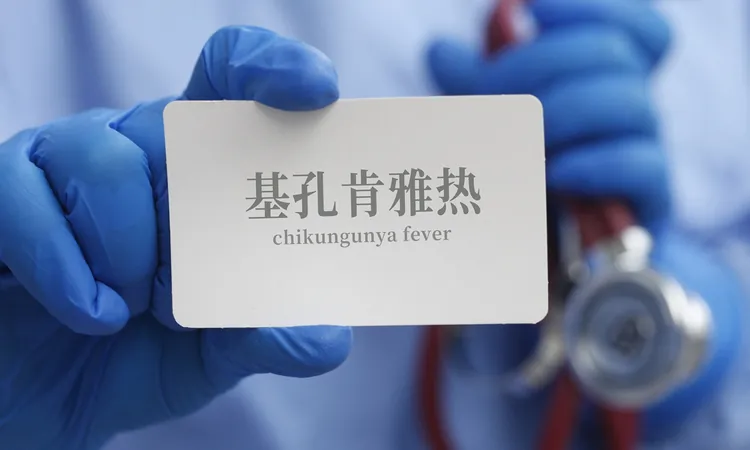
Unlocking the Brain's Secrets: Neurons Have Their Own "Backup Batteries"!
2025-07-16
Author: Jia
In a fascinating breakthrough from Yale University, researchers have unveiled a stunning fact: neurons, the vital energy-demanding cells in our brains, possess their very own "backup batteries" that activate during stressful times when energy sources wane.
Published in the prestigious Proceedings of the National Academy of Sciences, this groundbreaking study revealed that neurons can store glycogen—an energy-rich sugar that helps maintain their resilience, even when the usual sources of energy are compromised.
This surprising finding could revolutionize our understanding of neurological disorders such as strokes, neurodegeneration, and epilepsy, where energy supply failures play a crucial role.
Co-lead author Milind Singh, a dedicated doctoral student at the Yale School of Medicine, explained, "Historically, we thought glial cells were the brain's fuel reservoirs, but it turns out that neurons are equipped to hoard their own glycogen. Think of it this way: it’s like discovering your car can run on a hybrid system—it's not solely dependent on gas stations because it has an emergency battery ready for action!"
To make these sensational discoveries, the research team employed Caenorhabditis elegans (C. elegans), a microscopic worm often used in laboratory settings, along with a cutting-edge fluorescent biosensor called HYlight that illuminates changes in glycolysis—how cells convert sugar into energy.
Through innovative custom devices, they meticulously manipulated the oxygen levels in these worms and observed the resilient responses of neurons to energy stress in real time.
The real showstopper was the discovery of the enzyme PYGL-1, which mirrors the human glycogen phosphorylase enzyme that transforms glycogen into energy for neurons. When researchers knocked out PYGL-1, the worms’ neurons lost their ability to boost energy during low-oxygen episodes. However, upon restoring the enzyme specifically in neurons, their energy function was returned to normal.
Co-lead author Aaron Wolfe, a neuroscience postdoctoral researcher, noted, "We found that neurons employ dual strategies to cope with energy crises: one that relies on glycogen and one that doesn’t. The glycogen-dependent response is crucial when mitochondria—the powerhouses of the cells—are struggling to deliver energy. Under such circumstances, glycogen acts as an emergency energy source through glycolysis."
The researchers even coined a new term, "glycogen-dependent glycolytic plasticity" (GDGP), to describe this vital process. GDGP proves particularly critical during mitochondrial dysfunctions, such as hypoxia, as glycogen provides a quick and affordable energy source, keeping neurons active when other energy systems might fail. This metabolic flexibility, dubbed "glycolytic plasticity," underpins how neurons maintain their essential operations under stress.
Singh emphasized the implications of this work, stating, "Our findings challenge the traditional views of brain energy supply. Neurons are far more self-sufficient than we previously believed. The future of neurobiology may never look the same again!"


 Brasil (PT)
Brasil (PT)
 Canada (EN)
Canada (EN)
 Chile (ES)
Chile (ES)
 Česko (CS)
Česko (CS)
 대한민국 (KO)
대한민국 (KO)
 España (ES)
España (ES)
 France (FR)
France (FR)
 Hong Kong (EN)
Hong Kong (EN)
 Italia (IT)
Italia (IT)
 日本 (JA)
日本 (JA)
 Magyarország (HU)
Magyarország (HU)
 Norge (NO)
Norge (NO)
 Polska (PL)
Polska (PL)
 Schweiz (DE)
Schweiz (DE)
 Singapore (EN)
Singapore (EN)
 Sverige (SV)
Sverige (SV)
 Suomi (FI)
Suomi (FI)
 Türkiye (TR)
Türkiye (TR)
 الإمارات العربية المتحدة (AR)
الإمارات العربية المتحدة (AR)